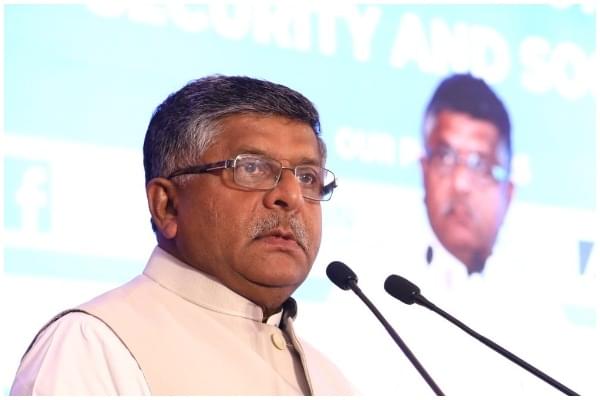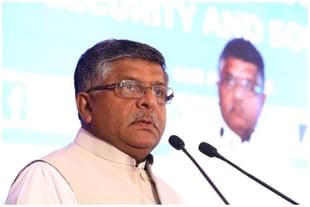Business
5G Auction: Why Growth Must Take Precedence Over Revenues This Time
R Jagannathan
Oct 15, 2019, 01:27 PM | Updated 01:27 PM IST
Save & read from anywhere!
Bookmark stories for easy access on any device or the Swarajya app.


Communications Minister Ravi Shankar Prasad promised reforms (ie, reductions) in spectrum pricing, especially with the likelihood of 5G auctions looming large over a debt-handicapped telecom industry. If he really wants to think big, he should change the entire nature of spectrum pricing from high upfront fees to pay-as-you-go, based on usage and revenues generated.
Last year, the Telecom Regulatory Authority of India (TRAI) had proposed to put 8,644 Mhz of spectrum on auction, raising a potential Rs 5 lakh crore if all of it was sold. But this number was always pie-in-the-sky, since there is no way such large revenues can be generated in a market with just three private players and one public sector stretcher case, especially when tariffs have reached rock-bottom.
It is interesting that over the last two years no auction has been held, with the last one generating under Rs 66,000 crore in fiscal 2016-17. This shows that the appetite for high-cost spectrum has waned, and if the prices are not right, some telcos will not bid.
There is a case for shifting the emphasis in auctions from revenue to boosting growth – something that was the norm before the 2G scam forced governments to try and maximise revenues upfront.
There are two ways to do it.
One is to offer all players radio waves on a revenue-share basis, after a fixed minimum fee. The telcos will then bid on the basis of the revenue share they can offer per Mhz of all-India spectrum in any band.
Two, the alternative would be to offer a fixed spectrum rate that is well below the reserve price suggested by TRAI, but indexed to inflation every two years. This way the government loses immediate gains in revenue, but could recoup some of it in corporate taxes when telcos make higher profits from expanding revenues.
Either way would work. What is crucial is the admission that in a field of three players, all roughly with the same scale of business, the emphasis should shift from spectrum auction revenue maximisation to delayed tax earnings that follow growth in tele-density and higher revenues per user.
This is the time to wait for the goose to lay its golden eggs one by one, and not seek all of it upfront.
The economic slowdown and weak telco balance-sheets have ended the case for high spectrum prices. The focus must be on nursing the industry back to its days of prosperity.
Jagannathan is former Editorial Director, Swarajya. He tweets at @TheJaggi.





